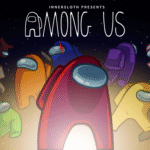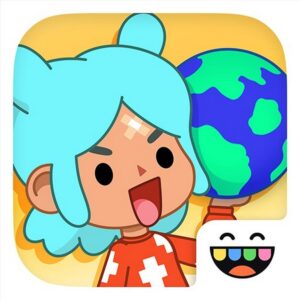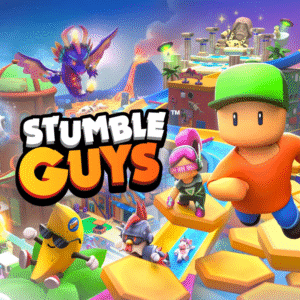A Humping in the Road: Epic Games Vaults ‘Gooning’ Emotes in Fortnite
Popular Now
 Warframe
Warframe
 Roblox
Roblox
 Auto X Drift Racing 3
Auto X Drift Racing 3
 Among Us
Among Us
 Poppy Playtime
Poppy Playtime
 Candy Crush Saga
Candy Crush Saga
 Black Myth: Wukong
Black Myth: Wukong
 R.E.P.O
R.E.P.O
 Geometry Dash
Geometry Dash
 PUBG Mobile
PUBG Mobile
 The world of Fortnite, a game beloved by millions of all ages, has always been a strange and often unpredictable place. From the iconic dance moves of its in-game avatars to its high-profile celebrity collaborations, the game’s emotes are a core part of its cultural identity. However, they have also been a source of a persistent and increasingly problematic issue: “gooning.” This term, used by some corners of the community, refers to the practice of using specific emotes in close proximity to other players to create animations that mimic lewd or sexual acts. After months of community reports and rising concern, Epic Games has finally taken decisive action, “vaulting” the ability to perform these specific combinations, a move that has been met with both support and some controversy.
The world of Fortnite, a game beloved by millions of all ages, has always been a strange and often unpredictable place. From the iconic dance moves of its in-game avatars to its high-profile celebrity collaborations, the game’s emotes are a core part of its cultural identity. However, they have also been a source of a persistent and increasingly problematic issue: “gooning.” This term, used by some corners of the community, refers to the practice of using specific emotes in close proximity to other players to create animations that mimic lewd or sexual acts. After months of community reports and rising concern, Epic Games has finally taken decisive action, “vaulting” the ability to perform these specific combinations, a move that has been met with both support and some controversy.
 The Problem of ‘Gooning’ and the Need for Action
The Problem of ‘Gooning’ and the Need for Action
The practice of “gooning” has existed in Fortnite for a while, but it has become increasingly visible and widespread due to viral social media clips and the game’s ever-growing player base. The issue stems from the fact that many of the game’s emotes, while seemingly innocent on their own, can be combined in specific ways to create suggestive and inappropriate animations. For example, some reports mention emotes like “poki” or “party hips” used in conjunction with “bring it around” or “ride the pony” to create a lewd mock-humping effect. This kind of behavior, while often done by a small subset of players, can be deeply unsettling for others, particularly given the game’s very young audience.
For Epic Games, the challenge was balancing freedom of expression with the need to maintain a safe and welcoming environment. Fortnite is a game for everyone, and allowing this kind of behavior, even if it’s a fringe issue, risks alienating a significant portion of its player base and tarnishing its reputation. The decision to restrict these emotes is not the first time Epic has had to make a tough call. In the past, the company has had to remove emotes entirely from certain in-game locations, like the Holocaust museum in the game’s educational “Fortnite: The Museum” map, to prevent disrespectful behavior. This latest move is a more direct and widespread attempt to curb the inappropriate use of a key gameplay feature.
Epic’s Solution: The ‘Proximity Restriction’
Rather than removing the emotes entirely from the game, Epic’s solution is a proximity-based restriction. Players are now prevented from using certain emotes when they are in very close proximity to another player. This means that while a player can still perform “poki” on their own, they will be blocked from doing so if they are right next to a teammate or an opponent. This approach is a clever and subtle way to address the problem without completely removing content that players have paid for. It targets the specific, problematic use of the emotes without impacting their normal, single-player functionality.
This action is part of a broader trend within the gaming industry to clamp down on toxic and inappropriate player behavior. Major platforms like Roblox have recently updated their community standards to specifically target “romantic and sexual content,” a move that was likely inspired by similar issues. For a company like Epic, whose brand is built on being fun and family-friendly, addressing the “gooning” issue was an essential step. It sends a strong message to the community that this type of behavior will not be tolerated and that the company is committed to making Fortnite a safe space for all players.
The Community’s Reaction and the Path Forward
The community’s reaction has been largely positive. Many players have praised Epic for finally addressing an issue that had been a persistent source of discomfort. Social media and forums are filled with players celebrating that “gooning has been vaulted,” a term that has become a meme in and of itself. However, there has been some criticism. A small minority of players, many of whom are older, have argued that the restrictions are a form of “nanny-state” overreach and that the emotes were harmless. This criticism, however, largely misses the point. The issue isn’t about the emotes themselves; it’s about the context and the impact on a very large and diverse community that includes children.
Ultimately, Epic Games has once again shown its ability to adapt and respond to community concerns. The company has taken a difficult situation and found a solution that is both effective and respectful of its players’ purchases. The decision to restrict certain emote combinations is a significant step forward in the ongoing effort to make online games safer and more inclusive. It serves as a powerful reminder that in the world of online gaming, the developers have a responsibility to not just create a fun experience but also to build and maintain a healthy, respectful community.
Conclusion: A Safer, More Respectful Island
The end of “gooning” in Fortnite marks a new, more mature era for the game’s social landscape. While it may seem like a small change on the surface, the ripple effect will be felt across the game’s community. By restricting the ability to perform inappropriate emote combinations, Epic Games has reaffirmed its commitment to providing a safe and enjoyable experience for all of its players, from the most competitive pro to the youngest fan. The island is now a little safer, a little more respectful, and a lot less weird. And that, in the ever-evolving world of Fortnite, is a very good thing.










